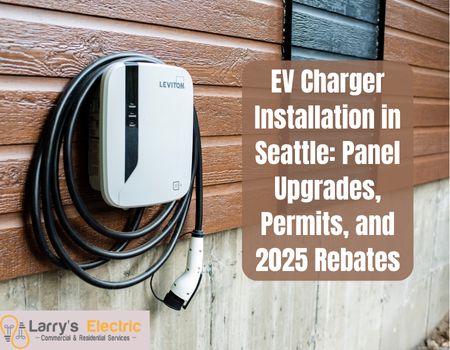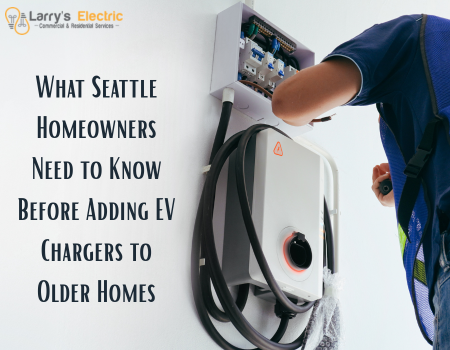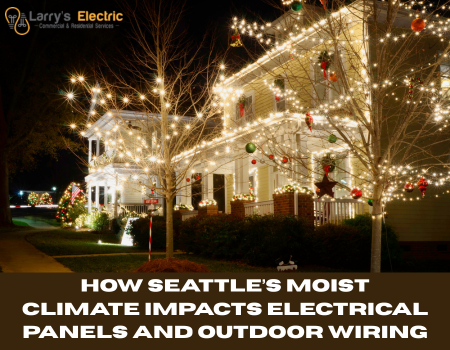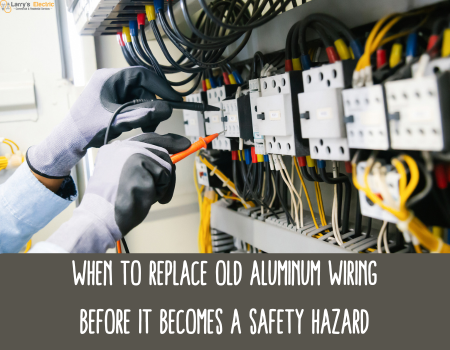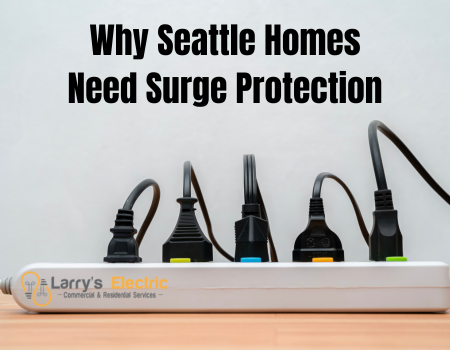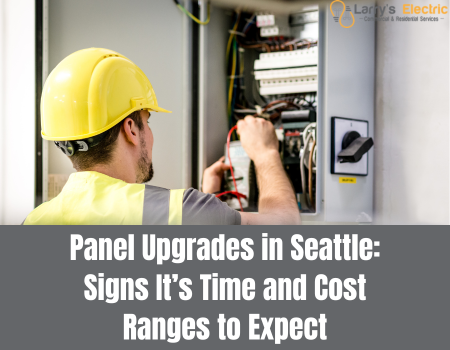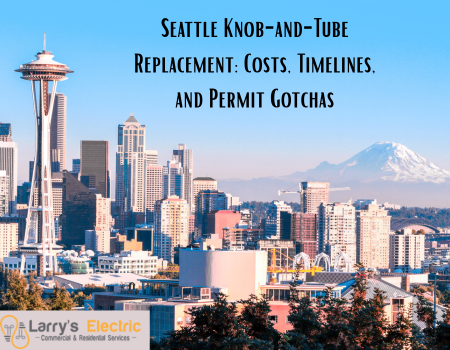Electric vehicle ownership continues to rise in the Pacific Northwest, and Seattle homeowners are increasingly looking to install Level 2 EV chargers at home. A properly installed charger can dramatically reduce charging times and add convenience, but it’s not as simple as plugging in a new appliance. In 2025, homeowners need to think about electrical panel capacity, city permitting requirements, and how to maximize available rebates before starting an installation.
Electrical Panel Upgrades: Do You Need One?
One of the first questions electricians ask when planning a charger installation is whether your home’s electrical panel can handle the additional load. Many older Seattle homes—particularly those built before the 1980s—still rely on 100-amp panels, and those may already be close to maximum capacity. Since a Level 2 charger requires a dedicated 240-volt circuit and draws 32 to 50 amps, many homeowners find they need an upgrade to a modern 200-amp panel.
Panel upgrades add to the cost and timeline, but they provide long-term benefits. In Seattle, upgrading from 100 amps to 200 amps, the costs depend on many variables like the home’s size and wiring complexity. The process also takes a few extra days because it involves coordination with Seattle City Light and additional inspections. The upside is that you’ll not only support an EV charger but also create capacity for future appliances, home additions, or even solar panels.
Permits and Inspections in Seattle
Electrical work for an EV charger requires a permit from the Seattle Department of Construction & Inspections (SDCI). Your electrician will usually handle this step, but it’s worth understanding what’s involved. The city issues an electrical permit to ensure the installation meets safety codes. After the charger is installed, an inspector from SDCI visits the property to sign off on the work.
Skipping permits may seem like a way to save money, but it can lead to fines, insurance issues, and problems during resale. Many Seattle homebuyers now ask for proof that electrical upgrades were done with permits, so taking the time to do it right protects your investment.
Rebates and Incentives Available in 2025
While installing an EV charger can feel expensive, several incentives help offset the cost. Seattle City Light continues to offer a residential rebate of up to $500 when you install a Level 2 charger using a licensed electrician. Income-qualified homeowners can receive enhanced rebates of up to $1,200. On top of that, a federal tax credit remains in place through 2032, covering 30 percent of the total cost (up to $1,000) for eligible residential installations.
Some utilities in the greater Seattle area also provide additional benefits, such as time-of-use charging discounts or credits for smart chargers. Homeowners who plan ahead and gather receipts, permits, and itemized invoices from their electrician can usually stack multiple rebates and significantly reduce their out-of-pocket expense.
Picking the Right Charger and Electrician
There is no shortage of Level 2 chargers on the market, from basic hardwired models to Wi-Fi-enabled units with scheduling and monitoring features. Brands like ChargePoint, JuiceBox, and Tesla Wall Connector are popular choices in Seattle, but your electrician can help you choose a charger that matches your car’s capabilities and your home’s layout.
Just as important as the charger itself is the electrician you hire. Choose someone experienced in EV charger installations who will evaluate your current electrical system, confirm whether a panel upgrade is necessary, and handle all permitting and inspections. A skilled contractor will also help you position the charger for convenience and safety and can advise you on which rebates you qualify for.
Installing a Level 2 EV charger at home in Seattle involves more planning than many homeowners expect. Between potential panel upgrades, permitting requirements, and coordinating inspections, the process often takes one to three weeks from start to finish.
By working with a licensed electrician and applying for all available rebates in 2025, you can reduce the overall cost and ensure your installation meets Seattle’s safety standards. The result is a faster, more reliable way to charge your EV and a home that’s ready for the future of transportation.

